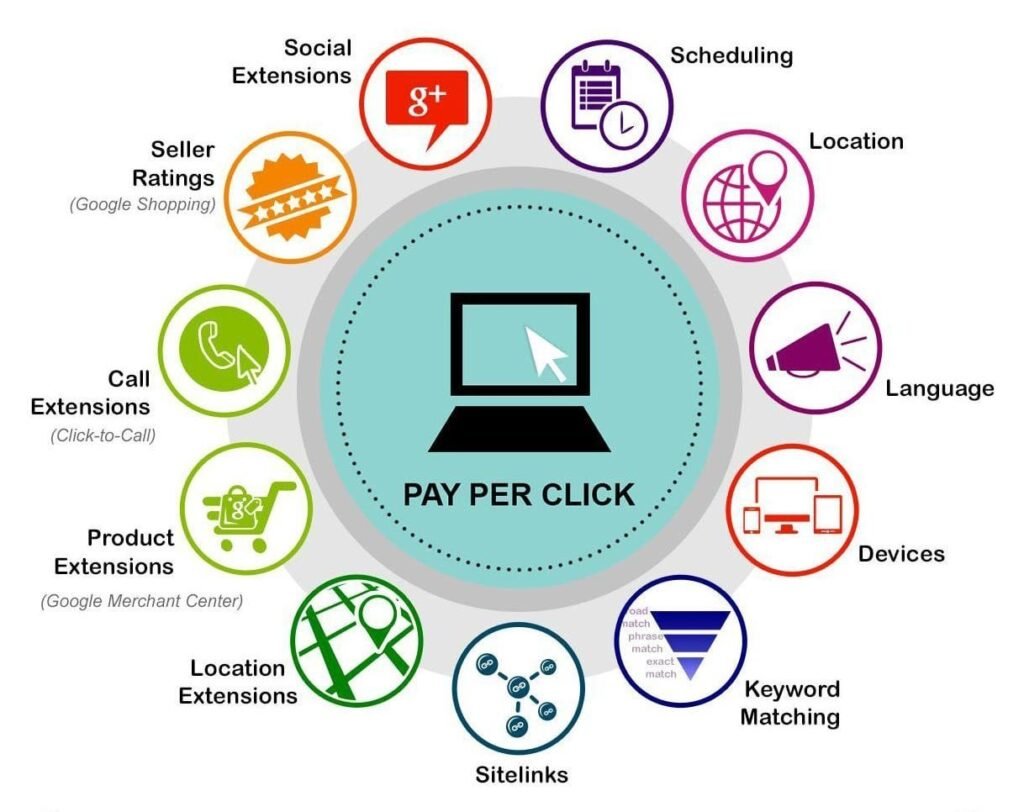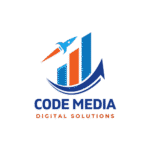
Pay-Per-Click (PPC) advertising is a highly effective online marketing strategy where businesses pay a fee each time their ad is clicked. The most common platform for PPC is Google Ads, but other platforms like Bing Ads and Facebook Ads also offer this type of service. Below are the key benefits and uses of PPC for service providers and businesses:
1. Immediate Traffic
- Instant Results: Unlike organic SEO, which can take time to show results, PPC provides immediate visibility. As soon as your ad campaign goes live, your business can start appearing at the top of search results or on websites that are part of the Google Display Network.
- Targeted Traffic: Since you’re paying only for clicks, you’re guaranteed that each visit to your website comes from someone who is actively interested in your services.
2. Highly Targeted Advertising
- Demographic Targeting: PPC platforms like Google Ads allow businesses to target specific demographics, including location, language, age, device type, and even time of day. This ensures your ads reach the most relevant audience.
- Keywords Targeting: You can choose keywords that align with your services, so your ads only appear when potential customers search for relevant terms, increasing the likelihood of conversions.
- Remarketing: PPC allows businesses to retarget people who have previously visited their site but did not complete a desired action (like making a purchase or booking an appointment). Remarketing ads can remind these visitors of your services, increasing the chances of converting them into customers.
3. Budget Control
- Set Your Own Budget: PPC platforms allow businesses to set their own daily or monthly budgets. You only pay when someone clicks on your ad, and you can stop or pause the campaign at any time.
- Cost Control: You have complete control over how much you want to pay per click. You can adjust bids for individual keywords based on performance, ensuring you’re maximizing your ROI (Return on Investment).
4. Measurable Results and Analytics
- Performance Tracking: One of the biggest advantages of PPC is that it’s highly measurable. Google Ads, for example, provides detailed reports on how your ads are performing, including the number of clicks, impressions, conversion rates, and the cost per conversion.
- A/B Testing: You can test different versions of your ads (A/B testing) to see which messaging, keywords, or targeting options perform the best. This helps you continually improve your ad campaigns over time.
- Conversion Tracking: PPC platforms allow businesses to track what happens after a click, such as whether the user fills out a contact form, makes a purchase, or calls your business. This allows you to measure the success of your campaign in terms of actual business outcomes, not just clicks.
5. Increased Visibility
- Ad Placement at the Top: With PPC, your ads are often placed at the top of search engine results or on highly visible sections of websites. This ensures that your business gets prime visibility when potential customers are actively searching for services like yours.
- Brand Awareness: Even if people don’t click on your ad immediately, seeing your brand name frequently builds brand awareness, which can lead to increased future traffic and business.
6. Flexibility and Customization
- Adjust Campaigns Quickly: Unlike traditional forms of advertising (like print or TV ads), PPC campaigns can be modified almost instantly. If you want to change your ad copy, keywords, or targeting criteria, you can do so in real-time to optimize your campaigns.
- Ad Extensions: Google Ads allows you to use ad extensions (like call buttons, location details, or additional site links), which can provide more information to customers and improve your ad’s performance.
7. Competitive Advantage
- Competing with Larger Businesses: PPC allows small businesses or service providers to compete with larger competitors. By targeting specific, low-competition keywords or focusing on local searches, even small businesses can gain visibility and customers in a competitive market.
- Keyword Advantage: If your competitors aren’t using PPC, you can take advantage of this gap by bidding on highly relevant keywords. Similarly, if they are using PPC, you can use competitive keyword strategies to capture some of their market share.
8. Local and Global Reach
- Local Advertising: For service providers that operate in specific locations, PPC allows you to target local customers by setting geographic targeting options (e.g., targeting a specific city or neighborhood). This is ideal for businesses like local law firms, salons, or contractors.
- Global Reach: If your services are available internationally or across multiple regions, PPC can be used to target customers in different countries, expanding your reach beyond your local market.
9. Scalable Advertising
- Easy to Scale: If a PPC campaign is successful and bringing in customers, it’s easy to increase your budget to scale the campaign. Similarly, if certain keywords or strategies are underperforming, you can quickly adjust and optimize your ads.
- Test Different Ads and Keywords: Businesses can experiment with different ad variations, keywords, and targeting strategies to identify the most effective combination. This helps optimize the return on your ad spend.
10. Enhanced Customer Engagement
- Custom Messaging: PPC allows you to tailor your ad messaging to address customer pain points or promote specific offers, making it easier to engage with your audience on a deeper level.
- Direct Response: PPC ads can include calls-to-action such as “Call Now,” “Get a Quote,” or “Sign Up Today,” which encourage users to take immediate action, leading to higher engagement.
11. Mobile and Video Ads
- Mobile Advertising: Since more people are using smartphones, PPC platforms like Google Ads allow businesses to create mobile-friendly ads that show up in mobile search results or apps, reaching potential customers on the go.
- Video Ads: PPC platforms like YouTube Ads allow businesses to run video ads, which can be highly engaging and effective for visual industries such as fitness, travel, or design.
Conclusion
PPC is a powerful tool for businesses and service providers looking to boost their online presence, increase visibility, and generate leads quickly. By offering immediate results, targeted marketing, and measurable outcomes, PPC provides a flexible and scalable advertising option that can yield a high return on investment (ROI). Whether you’re looking for local exposure or global reach, PPC allows businesses to effectively reach potential customers and grow their customer base.
